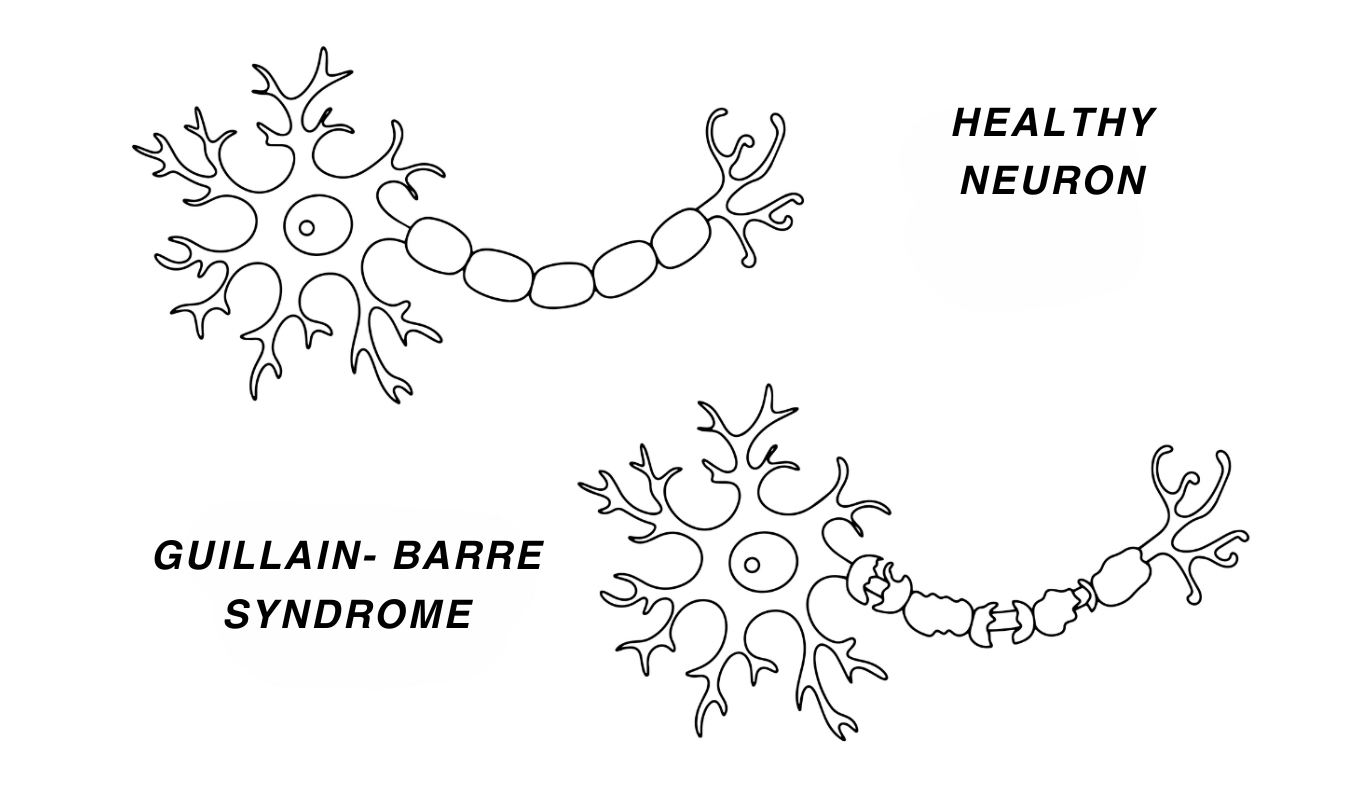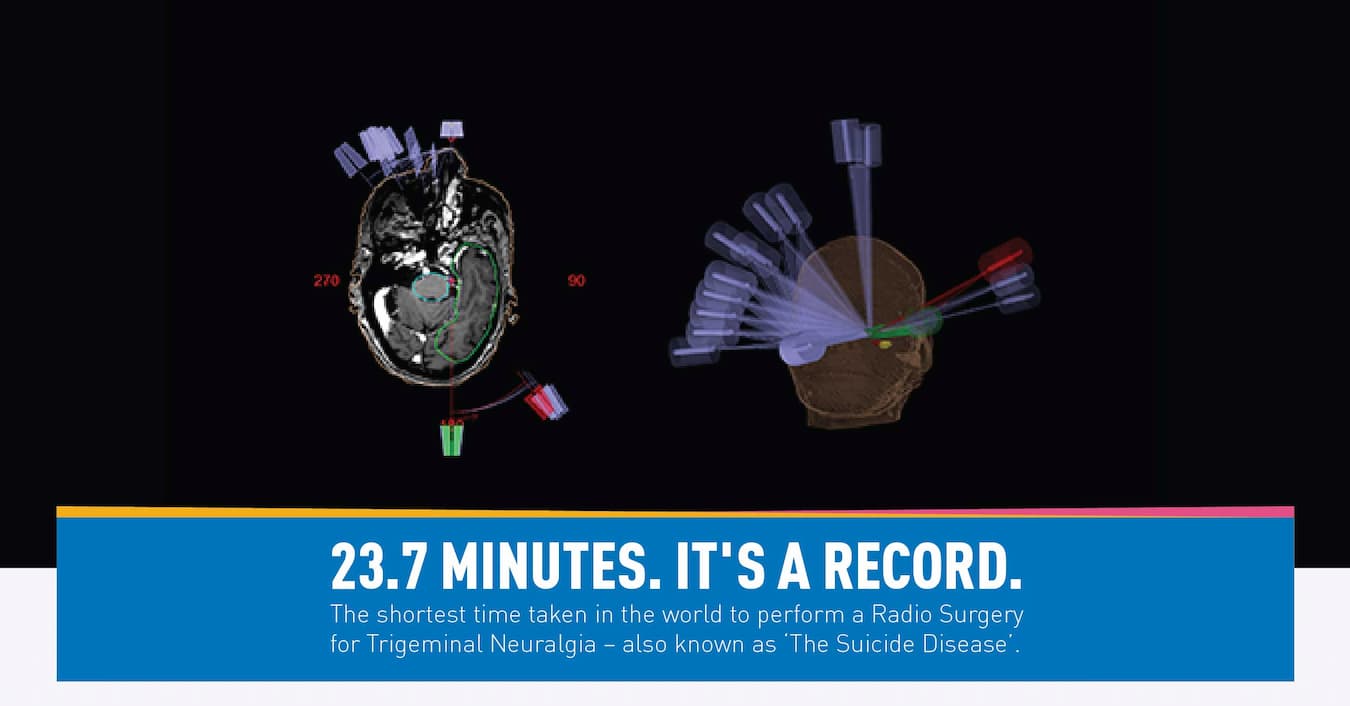
14 Apr, 2025

14 Apr, 2025

This article is medically reviewed by Dr Varun Manjunath, Consultant - Neurology, HCG Cancer Centre, KR Road, Bengaluru.
Guillain-Barre syndrome (GBS), also referred to as Guillain-Barre illness, is a rare neurological disorder that affects the peripheral nervous system. It leads to weak muscles, numbness, and sometimes paralysis too. The Guillain-Barre syndrome cause is not always known but is usually associated with infections, vaccinations, or other illnesses.
GBS symptoms usually start with leg weakness and tingling and then spread to other parts of the body. It is important to spot the early symptoms of Guillain-Barre syndrome so that medical help can be given quickly.
The legs become weak, making it difficult for a person to walk or stand, and this is one of the first Guillain-Barre syndrome signs.
With the spread of weakness, it becomes difficult to keep balance, and this results in an unsteady walking pattern.
GBS disease can disrupt the regulation of heartbeats, leading to episodes of fast heartbeats.
Many people experience changes in blood pressure, which can cause them to feel dizzy or even faint.
Sensation changes like tingling, numbness, and heightened sensitivity are other symptoms of Guillain-Barre.
Double vision and difficulty moving the eyes can be caused by cranial nerve involvement in a few variants, such as Miller-Fischer variant GBS.
As the GBS syndrome gets worse, there might be problems with speech and swallowing that would require medical attention.
Although the exact reasons for GBS disease are not known, a few factors can contribute to its development. The common causes of Guillain-Barre syndrome include:
Infections with Campylobacter jejuni, a bacterium that causes food poisoning, serve as a risk factor for GBS disease.
GBS has been associated with viruses such as influenza, Epstein-Barr, and many others.
Sometimes, people may get Guillain-Barre illness from vaccines, especially those used to prevent influenza.
Certain forms of cancer, like Hodgkin’s lymphoma, can heighten the chances of one contracting GBS disease.
Different types of GBS syndrome affect the nervous system in distinct ways.
The most usual type, AIDP, mainly injures the myelin sheath that surrounds nerves, causing weak muscles.
MFS is a rare form of GBS syndrome that causes weak eye muscles, lack of coordination, and loss of reflexes.
AMAN targets the nerves that control movement, resulting in weak muscles and intact sensory nerves.
AMSAN affects the nerves that control movement and feeling, causing worse and longer-lasting symptoms.
Diagnosis requires a doctor to examine you and do special tests like the Guillain-Barre diagnosis test.
These tests check how fast and well nerve signals work to find out if there is any injury to the nerves.
Sometimes, EMG is a test that uses electrical signals to check if the nerves are working well by studying how muscles react to these signals.
A spinal tap is done to check if there is a lot of protein in the cerebrospinal fluid (albumin-cytological dissociation), which is an important sign of Guillain-Barre syndrome.
Although Guillain-Barre syndrome is incurable, it can be managed and treated through different approaches, which can help in the recovery process.
IVIG therapy involves administering large amounts of antibodies to improve the functioning of the immune system.
Plasma exchange is another name for this therapy that gets rid of dangerous antibodies in the blood.
Physical therapy is important for gaining back strength, coordination, and the ability to move around.
Additional treatments may be required because GBS disease can lead to serious problems.
GBS syndrome can cause respiratory failure, and therefore, the patient may need to be put on a ventilator in extreme cases.
Anticoagulant medications and compression stockings lower the chances of deep vein thrombosis caused by being still.
Long-term rehabilitation programs can positively impact the Guillain-Barre syndrome recovery and help patients be able to do things on their own again.
Guillain-Barre syndrome prevention is not always possible; some ways can lower the chances.
Good hygiene practices help prevent infections that may trigger GBS disease.
A nutritious diet supports immune health and reduces infection risk.
To reduce the risk of getting bacteria or the GBS virus, avoid contact with infected individuals.
Regular disinfection helps prevent the spread of harmful pathogens.
The forecast is uncertain, and it depends on how serious the condition is, what treatment is administered, and how the patient is responding to the treatment. Most patients get completely better, but some may have long-lasting weakness or damaged nerves. Timely treatment and rehabilitation are crucial for prompt Guillain-Barre syndrome recovery.
“What is Guillain-Barre syndrome (GBS)?” This has become a common yet serious question in recent times.
It is a rare but serious neurological disorder that attacks the nervous system and causes weak muscles or even paralysis, as well as strange feelings. Although the exact causes of GBS disease are unknown, studies have found that certain infections, receiving vaccinations (in some cases), or having certain illnesses can increase the risk of GBS disease. Early diagnosis, plasma removal, Guillain-Barre disease treatment with IVIG therapy, and rehabilitation are important in managing this condition effectively.
There are different stages of Guillain-Barre syndrome; it may take a while for patients to pass through all its stages; most people get better after receiving medical treatment.

Dr. Varun Manjunath
Consultant - Neurology
MBBS, MD (General Medicine), DM (Neurology), DrNB (Neurology), MNAMS
Dr. Varun Manjunath is a highly skilled neurology consultant with 4 years of experience in diagnosing and managing various neurological conditions, along with performing neurological procedures. He is available for consultations at HCG Cancer Centre, K. R. Road, a leading cancer hospital in Bengaluru. He has a specialization degree in neurology (DM) from the prestigious institute of TNMC at BYL Nair Hospital (Mumbai), which was followed by a DrNB degree from the National Board. Additionally, he has completed various certification courses, including the Neuro-E-Zone course from Boston University School of Medicine and the ECG Course Certification from Johns Hopkins University.
To book an appointment link with Dr. Varun Manjunath, please click here.
